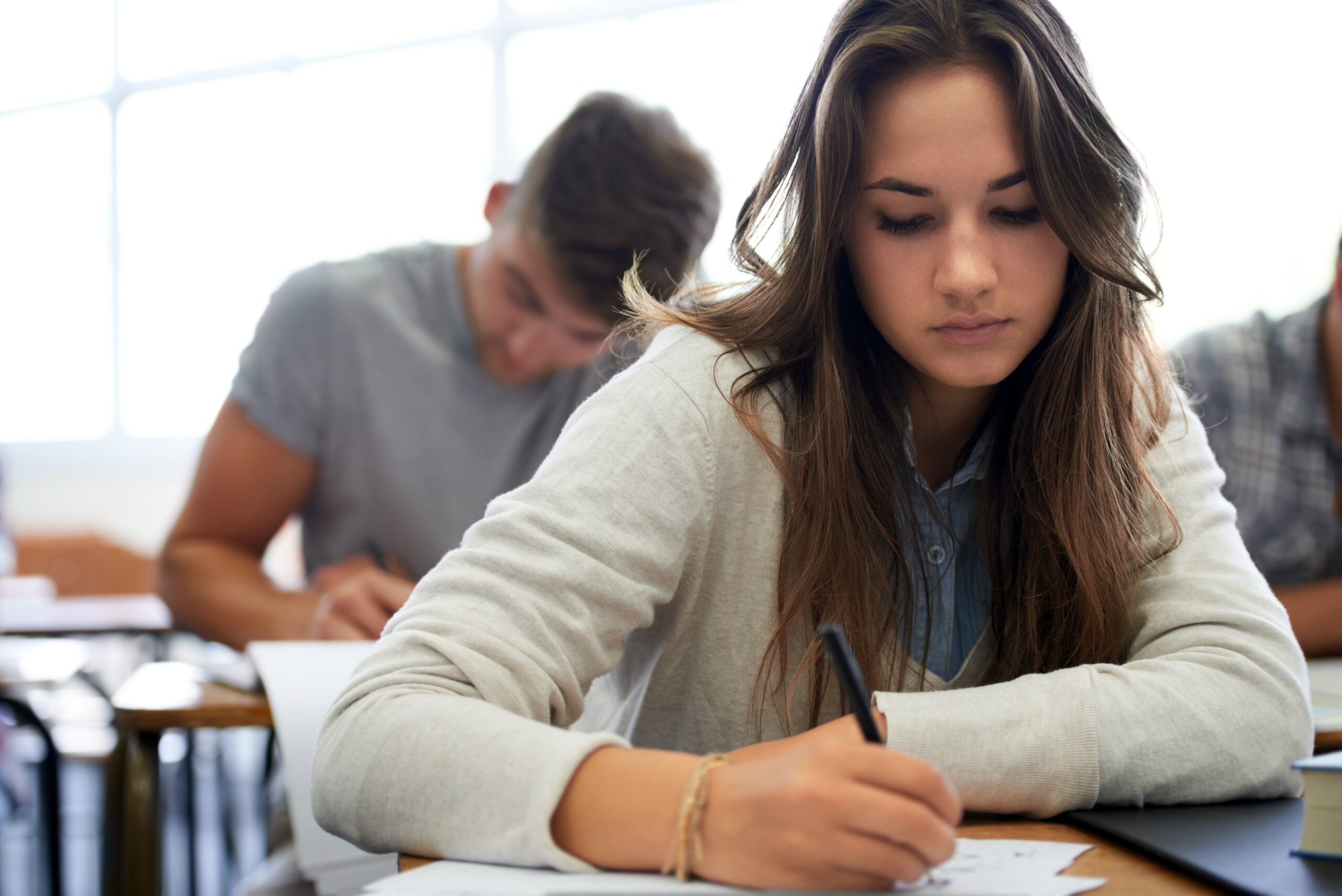The end of the school year can be a fraught time for secondary school students with NCEA exams looming and futures hinging on results. Most students will have at least four to six exams to sit from 9 November.
With mock exams mid-year they had a bit of a chance to prepare but this time it’s the real thing.
There are lots of things teens can do to get the most out of their study time and do well on exam day.
Here, we’ve asked Rangitoto College teacher and study skills expert Melanie Waugh for her top tips.

Preparation is key
One of the biggest sources of exam stress is being under-prepared and so the first thing Melanie Waugh talks to students about is the importance of creating a good study plan.
Block out exam dates and allow four weeks to study for each exam – an hour per night for each subject, she says.
Be specific in your study plan: “Don’t just write in ‘maths’ – define which topic in maths you’ll be focusing on with each study session,” Waugh suggests.
Having a plan and sticking to it creates good study habits “and once the habit is established kids don’t find study hard,” says Waugh.
She also suggests making sure you know exactly what’s going to be in the exam.
“Their teacher would have told them what content will and won’t be in the exam so it’s up to the student to make sure they’re clear on that so they don’t go and study the wrong stuff.”

Create the right environment
Where you study needs to be quiet, well-lit and free from distractions (including your phone). Everything you need (laptop, notes, pens, paper, work books) should be within reach.
Don’t study on your bed because we subconsciously associate our beds with sleep and rest. Waugh suggests using your bed as a ‘reward space’ – where you move to when you take a five-minute break to text your friend or have a cup of tea.

Keep it snappy
Shorter study sessions are more effective because the information you’re most likely to retain is what you studied at the beginning and end of each session.
Sessions are best kept to 20-30 minutes long with five-minute breaks in between. Waugh suggests getting up and moving around in breaks so that you only associate your study space with study.
The most productive time to study is between 4pm and 9pm.
“After that you’re too tired and the study you do is not going to be effective,” says Waugh.

Be smart about how you study
Effective study techniques include self-testing, drawing mind (or semantic) maps, writing notes out by hand and using colours and shapes to help link ideas and themes.
Self testing is where you write questions for yourself and test yourself against those. Stop at regular intervals to check the answers so that you know which areas you need to work on. As you get closer to exams do timed exam practice papers so that you get used to answering questions in timed circumstances, Waugh suggests.
Mind mapping is a diagram in which ideas, concepts, and images are linked together around a central concept, keyword, or idea. “When you draw a mind map it’s a motor action so it creates a link between hand movement (handwriting) and memory,” says Waugh. You can use different colours and shapes to represent themes and ideas. (Colour stimulates memory triggers, as does smell if you can find a way to incorporate scents into your study.)
Make flash cards using words, colours and images (words on their own are not as effective as words with visual stimuli.)
Quizlet is a free online study tool that includes quizzes, flash cards and interactive games.
The most ineffective way to study is to read over notes and highlight key points. You should only be doing this if your next step is to write out the points you’ve just highlighted.

Take care of yourself
Stress is triggered by changes in routine to it’s important to stick to your everyday routines as much as possible. Exams are not a reason to quit your sports team or throw in the towel at your part-time job. You need to also:
Make sure you’re getting plenty of sleep. Stop studying at 9pm, have half an hour or an hour to relax and unwind – and then bed.
Eat a balanced diet that includes plenty of fresh fruit and vegetables.
Drink plenty of water. It’s common for students to become dehydrated during exam time because they’re studying for prolonged periods of time and forgetting to hydrate. This is also why students are now allowed to take water bottles into exams.
Make sure you’re getting regular exercise and fresh air. Going for a walk, run, bike ride or swim helps clear your head and re-energise you.

The night before – sleep or study?
A last-minute all-night cramming session will undermine your learning and performance. You’ll wake up exhausted and feeling like you’ve already sat the exam.
A better approach the night before is to review the most important points and then go to bed at the same time as usual. You’re better to get up early the next morning and revise if you’re really that worried.

On the morning of your exam eat a healthy, nutritious breakfast such as porridge with berries and nuts or a fruit smoothie or wholegrain toast with peanut butter and a glass of milk.
Pack a large bottle of water as well as healthy snacks.
Steer clear of snacks/drinks that are high in caffeine or sugar such as chocolate, lollies, coffee and energy drinks. The sugar and caffeine make you restless and you’ll have a blood sugar spike followed by a crash that will leave you feeling flat halfway through the exam.

And in the exam…
Spend the first five minutes skimming over the exam and identifiying the easy and challenging questions – DON’T pick up your pen.
“This is what is practiced for the International Baccalaureate and university exams – but not yet for NCEA – and it’s a strategy that’s been put in place by those organisations because it gives students a chance to settle in. It’s been recognised that when you first sit down to an exam and get told ‘start’ you get a surge of adrenalin. Students that go straight into an exam suffer anxiety in those first few minutes and this can set the tone for the whole exam.
“Even when they say you can start, don’t pick up your pen and start, just take a couple of minutes to settle down first.”
Read your questions carefully and use highlighters to highlight key words to help you understand what you’re being asked.
Start with the easy questions first and use the planning spaces – drawing a quick mind map can help you stay on track when you’re writing an essay and you can tick off key points as you cover them off.
Take two minutes between long questions to lean back in your chair and close your eyes or look out the window and resettle yourself before going in to the next question.
If you finish early, Waugh suggests checking back over your answers – “but don’t sit waiting until the end if you feel you’ve finished”.

And afterwards…
Once the exam is done, put it behind you and move on.
“A lot of students really stress if they’ve walked away from an exam and felt they haven’t done very well. It’s really important between exams to adopt that mindset that it’s done now and move on because otherwise that impacts how you feel going into your next exam. Don’t sweat something you can’t change.
It’s over now; don’t worry about it – and you’ve probably done better than you think you have anyway.”


